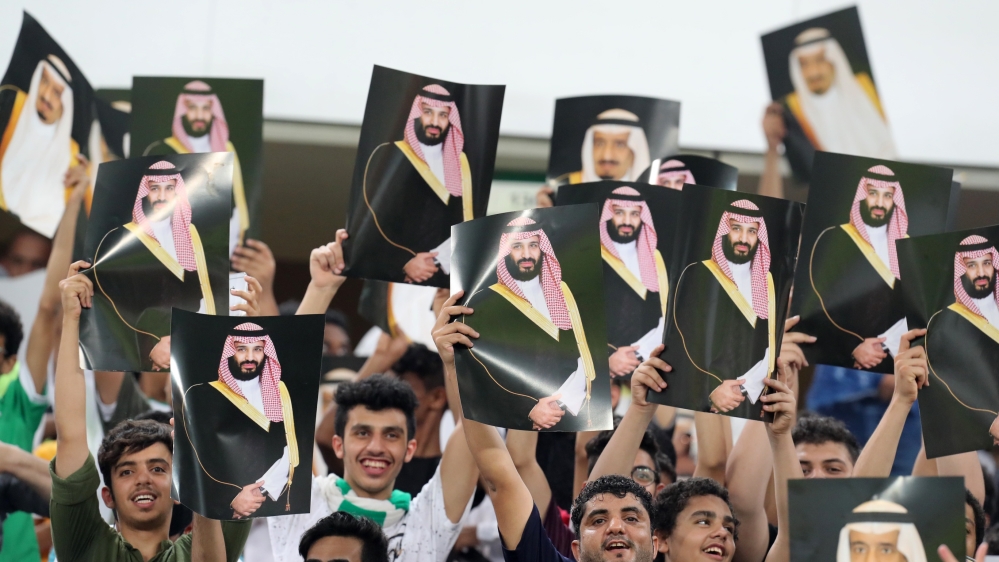Can Saudi Arabia’s financial reforms be successful?

Reforms spearheaded by Saudi Arabia’s crown prince may well per chance even be insufficient to wean the economy from its dependancy to oil and manufacture a thriving private sector ready to generate ample jobs, economists and analysts reveal.
Prince Mohammed bin Salman’s « Vision 2030 » master concept objectives to change into Saudi’s economy as sluggish oil costs squeeze its budget.
Since Mohammed bin Salman cracked down on corruption earlier this month, some observers accept as true with voiced concerns in regards to the affect of political menace on his plans, amid fears of a backlash.
« No person the truth is expects Vision 2030 to be fully implemented, nonetheless it is an are trying to reveal the enviornment that there is a direction of accelerate a long way off from oil, » Jane Kinninmont, a senior evaluate fellow on the Chatham Home deem-tank in London, suggested Al Jazeera.
« In the raze, success is depending on the willingness of international investors to position their cash within the nation, and there are some concerns for the time being about political menace, that should always not serving to the nation gather the ranges of investment they need. »
The dominion has long tried to diversify a long way off from its dependence on oil, nonetheless this effort has gathered tempo with the give design in costs since 2014.
Unveiled final year, Vision 2030 is a radical formulation by Mohammed Bin Salman – popularly normally known as « MBS » – to kick-birth pattern of the non-oil private sector.
His audacious targets envisage growing the non-public sector’s contribution to GDP from 40 to sixty 5 percent.
Demographic time bomb
Reform is a truly critical if the Saudi executive is to defuse a demographic time bomb that makes it a should always-accept as true with to manufacture jobs – immediate.
Jason Tuvey of Capital Economics in London acknowledged that as many as 5.5 million fresh workers may well per chance enter the Saudi labour power by 2030.
« The working-age population is expanding all of a sudden. UN estimates counsel that, by 2030, this may occasionally per chance upward push by extra than 1 / four. Right here’s one of the steepest rises within the emerging world, » he acknowledged.
The terrorized Saudi voice can’t provide ample jobs for these fresh workers and unemployment is rising, hitting 12.7 percent earlier this year, underlining the priority of non-public sector increase.
On the different hand, whereas Mohammed Bin Salman’s reforms accept as true with generated enthusiasm in predictable quarters such because the World Monetary Fund (IMF), economists should always not entirely satisfied.
 |
« Whereas the scope of the programme is spectacular, this may occasionally per chance face comparatively about a implementation challenges and smooth fails to address several key concerns preserving relieve financial increase, » Tuvey acknowledged.
« The final result is that Vision 2030 is at risk of fall attempting its lofty intentions. »
There are a series of causes for the scepticism. Whereas diversification has been a policy priority since the 1970s, efforts accept as true with typically fallen attempting targets.
Be taught at Chatham Home suggests that Vision 2030’s audacious dreams may well per chance replicate a protracted tradition of « optimism bias » in Saudi diversification plans aimed against grabbing world attention.
One example of such lofty ambitions came with the announcement in October of proposals to manufacture a ample fresh $500bn financial zone on the Red Sea called « Neom ».
« Neom has helped Saudi Arabia to accept as true with a splash and rebrand itself, nonetheless I deem it is highly unlikely that they will be ready to trusty that quantity of inward investment at a time when the Saudi scheme is altering so dramatically that there is terribly rather of political uncertainty, » Kinninmont suggested Al Jazeera.
Observers additionally comprise there are distinct limits to Saudi Arabia’s skill to wean itself from oil.
Saudi Arabia is pumping 12 million barrels a day, with hydrocarbons accounting for 50 percent of GDP and most executive income.
Its non-oil private sector additionally shows few indicators of stepping up: Tuvey acknowledged that in 2016, it recorded its worst efficiency since the late Nineteen Eighties.
Non-public companies accept as true with been held relieve by a unfold of complications which accept as true with kept productiveness ranges within the relieve of alternative G20 economies. Ancient productiveness has miserable wages, which methodology Saudi nationals pick working in executive jobs the build salaries are higher, swelling the forms.
‘Will or not or not it is easy?’
One signal of non-public sector weakness has been falling ranges of international investment, and Saudi Arabia languishes at 92nd out of a hundred ninety nations on the World Monetary institution’s Ease of Doing Industry 2018 listing.
At a conference final week in London, market commentator Simon Constable acknowledged the must haves foremost for a moving private sector include a sturdy rule of law, low corruption, a little forms, and restricted executive involvement within the economy.
« Saudi Arabia can transition a long way off from oil, nonetheless these components are key, » he acknowledged. « I deem it may actually per chance per chance be completed, nonetheless will or not or not it is easy? No, this may occasionally per chance need comparatively about a modifications. »
There are additionally broad social challenges to diversification, not least the indisputable truth that Saudis lack the skills to work within the non-public sector, no matter excessive executive spending on education.
World Financial Forum’s Global Competitiveness Document sees the inadequately skilled physique of workers as one of basically the most problematic components by methodology of doing commercial.
Whereas Vision 2030 does elaborate tutorial reforms, Tuvey says « the manager has shied a long way off from a critical-wanted overhaul » and its targets are « a long way from audacious ».
At final, the unconventional scope of Mohammed Bin Salman’s reforms accept as true with induced some observers to quiz whether a backlash is imaginable, in particular amongst likely losers within the reform task, equivalent to younger males.
« Some accept as true with argued that a consolidation of energy may well per chance accept as true with it more straightforward for MBS to push ahead with the Vision 2030 reform plans. But as we accept as true with well-known sooner than, there is a menace of a extra shift a long way off from consensus-essentially based policymaking. The ample menace here is a backlash against MBS that undermines his authority and threatens Vision 2030, » Kinninmont acknowledged.
« There may be a menace of a backlash, nonetheless the originate that that will per chance per chance also pick is terribly unclear. Mohammed Bin Salman is breaking most of the extinct principles of the Saudi scheme, and undoubtedly, there will likely be opponents of the modifications. »
Fresh financial wobbles accept as true with clearly not helped to bolster self belief. Monstrous costs accept as true with fallen 15 percent this year to well beneath ranges the manager desires to balance its funds.
Whereas commending the reform efforts, in July, the IMF revised its forecast for Saudi increase this year all the fashion down to correct zero.1 percent.
« Vision 2030 will not be overambitious – the actual vision is what the economy desires. There will not be any preference rather then audacious reform, » Marcus Chenevix, MENA analyst at TS Lombard in London, suggested Al Jazeera.
« If we evaluate issues bask in labour reform, one thing bask in the unpegging of the riyal, then yes, it may actually per chance per chance work. But criminal now, with the agenda we’re taking a locate at, this may occasionally per chance not happen. »
Be taught Extra


Commentaires récents